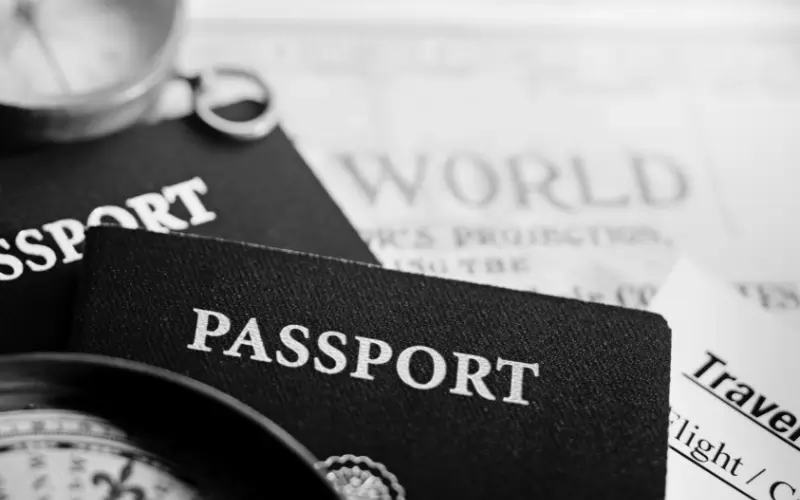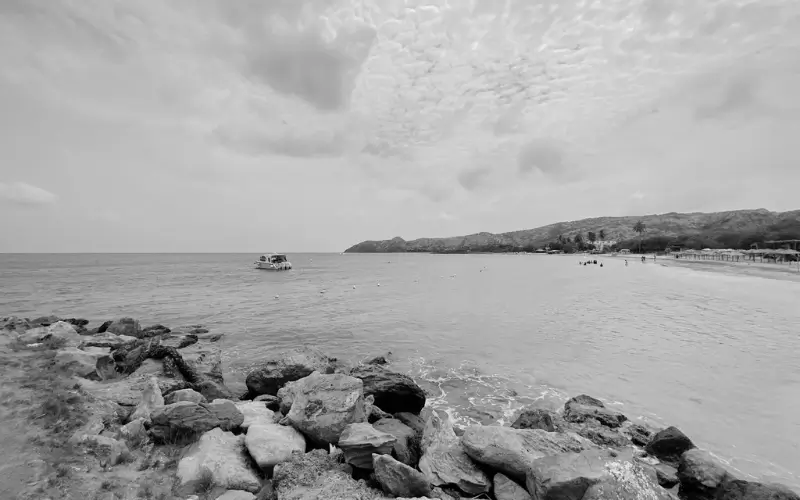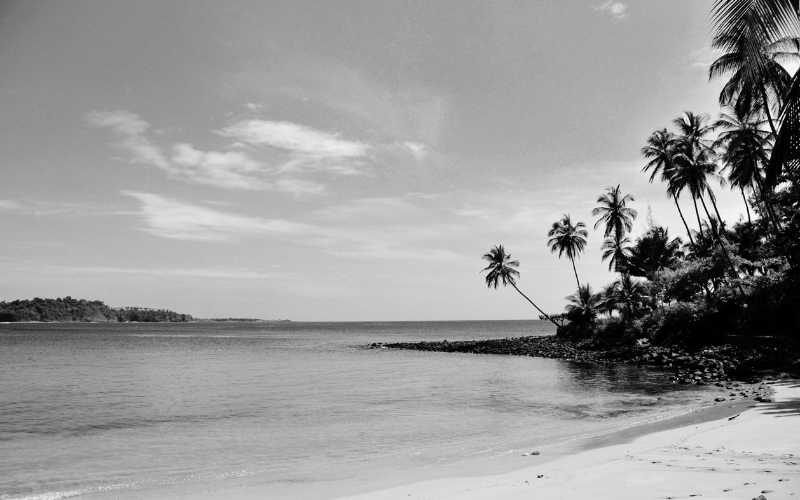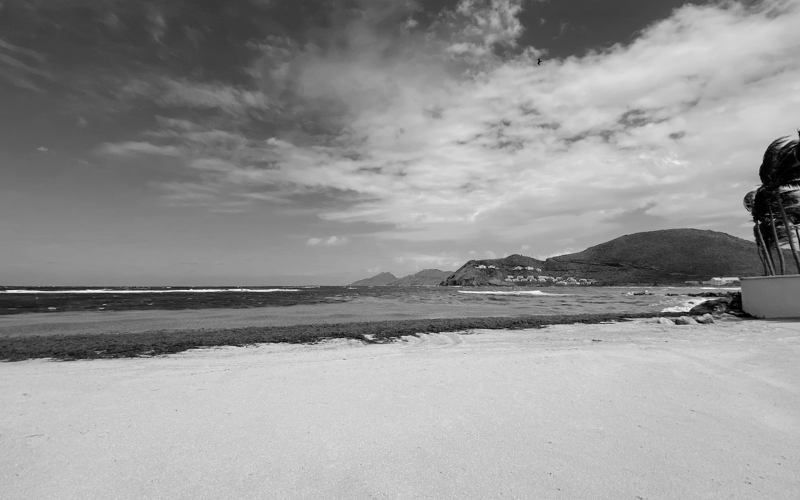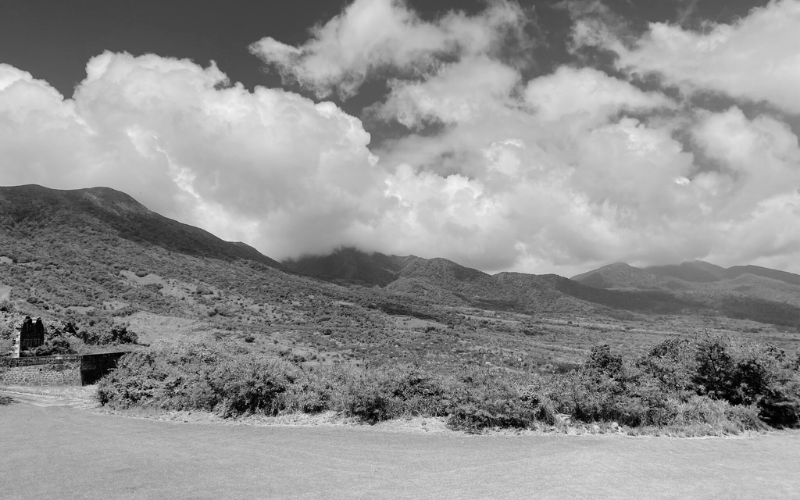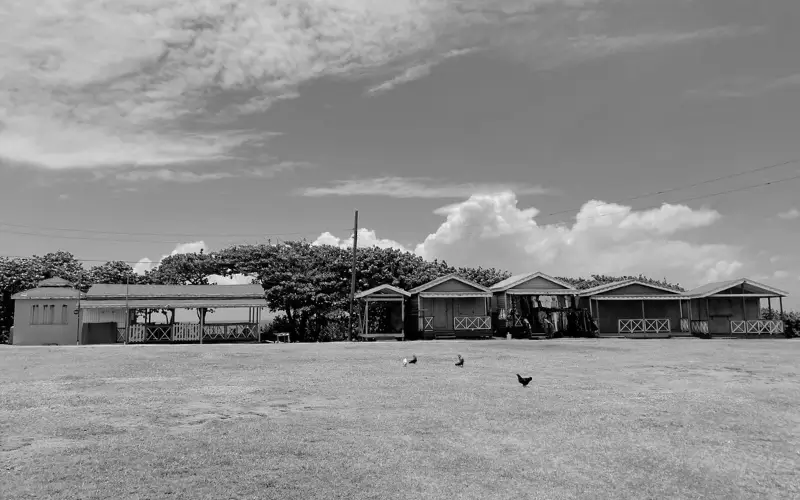When political tension rises, tax rules shift and markets swing, relying on just one citizenship can leave a family’s future exposed. Borders close, regulations tighten and travel freedoms can disappear overnight.
Citizenship by investment offers a lifeline for families who want real options when the world changes without warning. For many, the Caribbean is where that safety net starts, providing a way out for those who refuse to feel trapped.
Citizenship By Investment
Choosing where to secure second citizenship depends on your priorities, how quickly you need it, and how much complexity you are willing to handle. Some programs offer clear paths with few surprises, while others involve more conditions and time.
What Is Citizenship By Investment
Citizenship by investment is a legal process that allows an individual and their family to gain citizenship of another country by making a qualifying financial contribution. This usually means donating to a national fund or investing in approved real estate or development projects. In return, applicants receive the same rights as natural-born citizens, including a passport, without needing to live in the country full time.
Caribbean Citizenship By Investment
The Caribbean region has earned a strong reputation for clear, well-regulated citizenship by investment programs. Countries like St Kitts & Nevis, Dominica, Antigua & Barbuda, St Lucia and Grenada make it possible to secure a second passport through structured donations or approved real estate investments. These programs are known for straightforward requirements, competitive costs and practical timelines.
Other Citizenship By Investment Programs
Beyond the Caribbean, some investors look to places like Türkiye, Vanuatu or Nauru, which run their own citizenship by investment programs with quick timelines. Malta’s program has come under pressure after a recent EU court ruling challenged its legality. In Europe, golden visa schemes in Portugal, Greece and a few others offer residence first and a chance at citizenship later for those willing to meet stay and language rules.
Power Of A Second Passport
When one passport controls every choice, so does someone else’s policy. A second citizenship shifts that power back into your own hands, so you decide when to stay, when to move and how to protect what you’ve built.
A Practical Plan B
A second passport can act as an insurance policy when political or economic conditions change at home. Families gain a way to relocate quickly, protect wealth, or avoid sudden restrictions that might limit travel or business plans.
Broader Travel Access
Caribbean passports open visa-free or visa-on-arrival travel to well over 140 countries and territories, including the Schengen Area, the UK, Hong Kong and parts of Asia and Latin America. For entrepreneurs and frequent travelers, this means fewer delays and smoother international plans.
Keep Your Original Citizenship
The Caribbean countries with citizenship by investment allow applicants to hold dual citizenship. There is usually no need to give up your original nationality or tax residency if you choose not to.
Support For Future Generations
Many programs allow families to include spouses, children, dependent parents and sometimes siblings. This creates a lasting benefit that can be passed on, helping children and grandchildren hold more travel and residency options as the world changes.
Stable Environment
Countries offering these programs maintain steady political systems and reliable economies built on tourism, international banking and services. This stability provides peace of mind for investors who value predictable rules and sound governance.
Added Commonwealth Connections
Each of the Caribbean nations offering citizenship by investment are part of the Commonwealth, which can bring certain diplomatic, cultural and economic ties. While benefits vary by country, this connection often strengthens international recognition and cooperation.
CARICOM Movement
Holding citizenship in a country that belongs to the Caribbean Community (CARICOM) can give access to certain regional privileges, such as the right to live, work and do business more easily across other member states. CARICOM also supports regional trade and collaboration, helping citizens benefit from a larger shared market and smoother travel within the Caribbean.
Caribbean CBI Program Highlights
Choosing between Caribbean citizenship by investment programs often starts with a quick look at when each was launched, what it offers and what sets it apart.
| Key Details | St Kitts & Nevis | Dominica | Antigua & Barbuda | Grenada | St Lucia |
| Year Started | 1984 | 1993 | 2013 | 2013 | 2015 |
| Minimum Donation | $250,000 | $200,000 | $230,000 | $235,000 | $240,000 |
| Minimum Real Estate | $325,000 | $200,000 | $300,000 | $270,000 | $300,000 |
| Typical Processing Time For Pre-Approval | 120–180 days | 90–180 days | 120 days | 90–120 days | 90 days |
| Residency Requirement | None | None | Minimum stay of 5 days within the first 5 years | None | None |
| Defining Feature | Longest-running program and trusted offshore finance hub | Known as the Nature Isle for its lush environment and eco-focus | Famed for 365 beaches and strong family-friendly options | Only Caribbean CBI with US E-2 visa treaty; known worldwide as the Spice Isle | Offers unique government bond route and striking natural landmarks like the Pitons |
CBI Investment Options
Each Caribbean citizenship by investment program sets out a few paths to qualify, all built around a financial commitment that supports the country’s development. Families can choose the option that matches their budget and decide how their contribution fits into their wider plans for their future.
Donation
A donation is the simplest route to qualify for citizenship by investment. This contribution goes directly into a national fund used to drive social and economic progress. These funds help expand public services, upgrade roads and utilities, create jobs and strengthen healthcare and education. It’s a straightforward way to support the host country’s long-term growth while securing a predictable path to a second passport.
| Donation Route | St Kitts & Nevis | Dominica | Antigua & Barbuda | Grenada | St Lucia |
| Fund Name | Sustainable Island State Contribution (SISC) | Economic Diversification Fund (EDF) | National Development Fund (NDF) | National Transformation Fund | National Economic Fund (NEF) |
| Main Applicant | $250,000 | $200,000 | $230,000 | $235,000 | $240,000 |
| Main Applicant + Up To 3 Dependents | Inclusive | $250,000 | Inclusive | Inclusive | Inclusive |
| Each Additional Dependent (above a family of 4) Under 18 | $25,000 | $25,000 | Inclusive | $25,000 | $10,000 |
| Each Additional Dependent (above a family of 4) 18 Or Over | $50,000 | $40,000 | Inclusive | Each additional dependent: $25,000 Each parent, and grandparent under age 55: $25,000 Sibling: $75,000 | $20,000 |
Developers Real Estate Investment
Some investors choose to buy into government-approved real estate projects rather than make a one-time donation. This option allows them to hold an asset, often in the form of a share in a resort, villa or luxury residence. While meeting the investment requirement for citizenship, applicants can also earn rental income during the holding period and may benefit from a profitable resale once the minimum ownership term ends. For many, it’s a way to combine lifestyle, investment and a second passport in one step.
| Details | St Kitts & Nevis | Dominica | Antigua & Barbuda | Grenada | St Lucia |
| Minimum Investment | $325,000 | $200,000 | $300,000 | $270,000 (fractional) / $350,000 (sole) | $300,000 |
| Holding Period | 7 years | 3 years or 5 years if sold to another CBI applicant | 5 years | 5 years | 5 years |
| Real Estate Application Fees | Main applicant: $25,000 Spouse: $15,000 Each child dependent under 18: $10,000 Each dependent 18 or over: $15,000 | Main applicant: $75,000 Family of up to 4: $100,000 Each additional dependent (above a family of 4) under 18: $25,000 Each additional dependent (above a family of 4) 18 or over: $40,000 | Included in standard processing fee (no separate real estate fee) | Family of up to 4: $50,000 Each additional dependent (above a family of 4): $25,000 Each parent and grandparent under 55 years of age: $50,000 Each sibling: $75,000 | Main applicant: $30,000 Spouse: $15,000 Each dependent under 18: $5,000 Each dependent 18 or over: $10,000 |
Other Investment Options
Some Caribbean countries offer additional ways to qualify in addition to standard donations and approved real estate projects.
St Kitts & Nevis
St Kitts & Nevis offers applicants the opportunity to invest in private real estate, such as designated condominiums from $325,000 or approved single-family homes from $600,000. Both options require holding the property for seven years, which can help maintain stable foreign investment in the island’s real estate market. Private investments also follow the same real estate application fee structure as other approved developments.
Another path is the Public Benefit Option, where investors contribute $250,000 directly to national development initiatives, supporting projects that strengthen roads, utilities and community services. Post-approval application fees are applicable as well.
Antigua & Barbuda
Antigua & Barbuda gives families more flexibility through two additional alternatives. The business investment route allows applicants to invest a minimum of $1,500,000 into an approved local business, supporting jobs and economic growth.
The University of the West Indies Fund is another option, designed for larger families of six or more. With a contribution of $260,000 (with processing fees included), this option helps fund regional education while giving one family member a place at the university for at least one year.
St Lucia
St Lucia gives investors more than one way to meet the citizenship requirement while directly supporting national growth. The National Action Bond requires an investment of $300,000 plus a $50,000 administration fee. Although the bond pays no interest, it is fully government-backed and must remain in the applicant’s name for five years, helping fund public projects during that time.
For larger investors, St Lucia also accepts proposals under its Enterprise Project option. This allows a minimum investment of $3,500,000, plus a $50,000 fee, directed into major private ventures that contribute to the country’s economic development.
Dominica & Grenada
Dominica and Grenada do not offer any additional routes beyond their donation and standard real estate options.
Government Fees And Charges
Each citizenship by investment program in the Caribbean has its own government fees in addition to the main donation or real estate investment amount. These costs make up an important part of the process and vary depending on how many people apply and which country you choose. The fees listed are subject change and should be confirmed with an approved local agent. This is not a full breakdown of potential costs, other expenses may include agent local agent fees, local administrative charges, bank compliance checks, document processing, and courier services.
| St Kitts & Nevis | Dominica | Antigua & Barbuda | Grenada | St Lucia | |
| Due Diligence Fees | |||||
| – Main Applicant | $10,000 | $7,500 | $8,500 | $5,000 | $8,000 |
| – Spouse | $7,500 | $4,000 | $5,000 | $5,000 | $5,000 |
| – Dependents | Each dependent aged 16 and older: $7,500 | Each dependent aged 16 and older: $4,000 | Each dependent aged 12 to 17: $2,000 Each dependent aged 18 and over: $4,000 | Each dependent aged 17 and older: $5,000 | Each dependent aged 16 and older: $5,000 |
| Application Fee | $250 per person | N/A | N/A | $1,500 per person | Main applicant: $2,000 Each additional dependent: $1,000 |
| Processing Fee | N/A | $1,000 per application | Main applicant: $10,000 Family of up to 4: $20,000 Each additional dependent (above a family of 4: $10,000 | Main applicant: $1,500 Each additional dependent aged 16 and younger: $500 Each additional dependent aged 17 and over: $1,500 | N/A |
| Interview Fee | N/A | $1,000 per interview | $1,500 per application | Each person aged 17 and over: $1,000 | $500 per application |
| Certificate of Naturalization | N/A | $500 per person | N/A | N/A | N/A |
| Passport Fee | $350 per person | $300 per person | $300 per person | $350 per person | $1,540 per person |
Eligibility Requirements
Governments apply strict screening to confirm that only qualified and reliable applicants receive citizenship through investment. This protects national security, maintains international reputation, and preserves the value of the passport for every holder.
Main Applicant
Each CBI program sets its own standards, but common eligibility requirements include:
- Must be at least 18 years old
- Must make or commit to an approved investment or contribution under a citizenship by investment option
- Must meet all application conditions, including due diligence and financial checks
- Must be in good health with no communicable diseases
Applicants may be ineligible if they:
- Have a criminal record
- Are under criminal investigation
- Have been declared bankrupt within the past ten years
- Have been refused citizenship by another country
- Have been denied a visa to a country that has a visa-free agreement with the citizenship program (for example, a Portugal visa denial could affect a St Kitts & Nevis application)
- Are linked to any activity that could damage the reputation of the country granting citizenship
Banned Nationalities
| St Kitts & Nevis | Dominica | Antigua & Barbuda | Grenada | St Lucia |
| Afghanistan Belarus Iran Iraq North Korea Russia | Belarus Northern Iraq North Korea Russia Sudan Yemen | Afghanistan Belarus Iran North Korea Russia Somalia Sudan Yemen | Afghanistan Belarus Iran North Korea Russia Sudan Yemen | Belarus Russia |
Applications from these countries may still be considered in exceptional cases if the applicant can demonstrate that they have not lived in any of the listed countries for at least 5-10 years, do not hold any significant assets there, and have not carried out any business or similar activities, in whole or in part, in or with these countries.
Dependents
For families considering citizenship by investment, the ability to include dependents can make the process more cost-effective and straightforward. Each jurisdiction has its own definitions and conditions, which should be checked carefully before starting an application.
| Dependent | St Kitts & Nevis | Dominica | Antigua & Barbuda | Grenada | St Lucia |
| Spouse | Allowed | Allowed | Allowed | Allowed | Allowed |
| Children under 18 | Allowed | Allowed | Allowed | Allowed | Allowed |
| Children over 18 | Children aged between 18 and 30.* Children aged 18 or over who are physically or mentally challenged. *St Kitts and Nevis CBI Unit announced in September, 2025 the removal of the education requirement and extended dependent eligibility to children up to age 30. | Children aged between 18 and 30 who are in full-time attendance at a recognized secondary or tertiary level institution of learning and fully supported by the main applicant. Children aged 18 or over who are physically or mentally challenged. | Children aged between 18 and 30 who are in full-time attendance at a recognized secondary or tertiary level institution of learning and fully supported by the main applicant. Children aged 18 or over who are physically or mentally challenged. | Children aged between 18 and 30 who are in full-time attendance at a recognized secondary or tertiary level institution of learning and fully supported by the main applicant. Children aged 18 or over who are physically or mentally challenged. | Children aged between 18 and 30 who are fully supported by the main applicant. Children aged 18 or over who are physically or mentally challenged. |
| Siblings | Not eligible | Not eligible | Unmarried sibling of the main applicant or spouse | Not eligible | Unmarried sibling under age 18 with parental or guardian consent. |
| Parents/Grandparents | Parents aged 55 and over who are fully supported by the main applicant. | Parents and grandparents aged 65 and over who are fully supported by the main applicant. | Parents aged 55 and over who are fully supported by the main applicant. | Parents aged 55 and over who are fully supported by the main applicant. | Parents aged 55 and over who are fully supported by the main applicant. |
Application Requirements and Key Documents
The citizenship by investment units set strict documentation rules to verify that every applicant meets legal and security requirements. Each certificate, clearance, or proof must follow certain formats and timing standards, and any errors can lead to requests for new paperwork or outright refusal. Detailed checks like these help maintain the credibility of each program and protect the reputation of the passport.
Core Personal Documents
Each applicant, including dependents, must submit clear proof of identity and civil status. This usually includes a valid passport with enough validity to cover the process, full birth certificates for all family members, and, if applicable, marriage or divorce certificates. If custody or guardianship is relevant, court orders or consent letters may be required too.
Evidence Of Good Conduct
The citizenship by investment programs in the Caribbean require recent police clearance certificates for the main applicant and dependents. Certificates must be obtained from every country where the person has lived for at least six months in the past ten years, and usually must be issued within three months of submitting the application.
Financial Proof And Investment Records
Applicants must show that they have sufficient, lawful funds to make the required investment. This often means submitting recent bank statements, asset reports, and letters from banks confirming account status and balances. Once an investment is chosen, signed contracts, purchase agreements, or contribution receipts are needed to show the funds have been committed.
Health Checks
All family members must complete medical examinations. This usually includes a general health certificate plus specific test results (for example, HIV, blood and urine tests). The tests should be done close to submission, often no more than three months in advance.
Photographs
Caribbean citizenship by investment programs set detailed standards for passport photos to verify identity without delays. Photos must be recent, printed in color on high-quality photo paper, and meet exact rules for background color, size, facial expression, and items like glasses or head coverings. If photo guidelines are not met, new photos are usually required, which can cause delays.
Forms
Every required form must be filled out accurately, signed in all the right places, and dated when needed. Some forms must also be notarized to confirm authenticity. Incomplete or unsigned forms are a common reason applications are delayed, so careful checks help prevent setbacks. Applicants can work with an approved agent who reviews forms before submission to catch small errors early.
Translation, Notarization, And Legalization
Any documents issued in a language other than English must be translated by a certified translator, and some programs also require the translation to be notarized. Original documents often need to be notarized in the country of issue, and in some cases, an apostille or legalization stamp must be added to confirm authenticity.
Application Process
The process for Caribbean citizenship by investment programs follows a structured path with clear steps. While each country has its own administrative details, the general stages are similar across the region.
Work with an Approved Local Agent
The first step is to review, research, and compare the available citizenship by investment programs in the Caribbean. Once a program is chosen, the next step is to appoint a local agent. Local agents are government-approved and handle the full application submission and all communication with the citizenship unit.
Gather and Prepare Documents
Applicants must collect all required documents for themselves and any dependents. This often includes certified translations, notarization, or apostilles, depending on the issuing country. The local agent checks that each document is complete, accurate, and prepared in line with the program’s standards before submission.
Submit the Application and Pay Fees
Once all documents are ready, the local agent will confirm if hard copies need to be provided. The agent then prepares the application in the correct format and submits it to the citizenship unit along with the due diligence fees and any processing charges.
Due Diligence and Interviews
The citizenship by investment units then carry out detailed due diligence checks through independent international firms to verify identity, financial background, source of funds, and any links to crime or sanctions. Caribbean programs now include mandatory interviews for main applicants, and in some cases, for dependents as well. These interviews are often done remotely to confirm details and address any questions about background or finances.
Decision and Approval in Principle
If the application passes due diligence and the interview stage, the government issues an Approval in Principle. This confirms that citizenship will be granted once the full investment is paid and any final conditions are met. If any issues come up during checks or the interview, the government may request extra documents or explanations before deciding. If concerns cannot be resolved or serious problems are found, the application can be denied.
Complete Investment and Receive Citizenship
After approval, the applicant can then transfers the investment, typically required within 30 days of the approval notice. Once payment is confirmed, the citizenship by investment unit issues the Certificate of Naturalization. The local agent then applies for the passport at the relevant passport office. The passport can be collected in person or sent securely via courier.
Expected Timeline and Updates
Processing times for Caribbean citizenship by investment applications typically range from six to twelve months. Delays can happen if background checks reveal information that needs further review or extra evidence, if documents are incomplete or incorrect, or if scheduling the interview takes longer than expected. Staying in close contact with the local agent and responding promptly helps avoid delays.
Residency Requirements
The citizenship by investment programs in the Caribbean do not require applicants to live in the country either during the application process or after approval.
St Kitts & Nevis, Dominica, St Lucia, and Grenada have no minimum stay conditions at all. Antigua & Barbuda is the only program that includes a stay condition where new citizens must spend at least five days in the country within the first five years to maintain their citizenship status and remain eligible for passport renewal.
FAQ
How long does it take to get Caribbean citizenship by investment?
Timelines vary by country and how quickly documents are prepared but generally range from six to twelve months to obtain . Delays can happen if background checks raise questions or if extra paperwork is needed.
Do I have to live in the country to keep my citizenship?
No, Caribbean citizenship by investment does not require you to live in the country. However, Antigua & Barbuda does require new citizens to spend at least five days there within the first five years.
Can I include my family in the same application?
Yes. Spouses, dependent children, and in some cases dependent parents or siblings may be included if they meet the program’s criteria. Each country has clear rules about who qualifies and what documents are needed to prove dependency.
What kinds of investments qualify?
The two main options are a donation to a government fund or an approved real estate purchase. Some countries offer additional paths, such as a business investment or a government bond. Minimum amounts vary by country and family size.
Do I need to visit during the application?
There is no requirement to visit during the application process. Interviews are now mandatory for main applicants and sometimes for dependents, but these are usually done remotely.
Will I owe taxes in the Caribbean country?
Holding citizenship does not create new tax obligations unless you choose to become a tax resident. Foreign income, worldwide wealth, and inheritances are not taxed if you do not live there full time. Local taxes can apply if you earn income inside the country, like rental income from real estate.
Can my application be refused?
Yes. Applications can be refused if due diligence checks find serious issues like hidden criminal history, suspicious source of funds, or misleading information. Problems with documents, missed deadlines, or an incomplete file can also lead to rejection.
Is the passport renewable?
Yes. Once citizenship is granted, the passport is valid for a set period, usually five or ten years, depending on the country. Renewal requires meeting any stay requirements (such as Antigua & Barbuda’s five-day rule) and showing a clean record.
What happens if my circumstances change?
If your family grows, you can usually apply to add a new spouse or child later. If your passport is lost or stolen, your local agent can help you replace it through the passport office.
Can I hold dual citizenship?
Yes. All Caribbean CBI countries allow dual citizenship, so you do not need to renounce your original nationality unless your home country does not allow it.
Do I still need a visa for the U.S. or Canada?
Caribbean citizenship does not automatically grant visa-free travel to the U.S. or Canada. You must still apply for visas to those countries as normal.
How do I choose a good local agent?
Governments only accept applications through approved agents. Look for an agent with strong experience, clear communication, and a track record of successful applications. A reliable agent helps with paperwork, explains local fees, and manages all government submissions.
